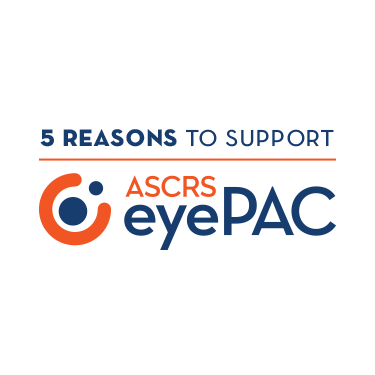Senate Republicans Release COVID-19 Relief Package, the Health, Economic Assistance, Liability Protection, and Schools (HEALS) Act; Negotiations Continue
On July 27, the Senate Republicans released their version of the next COVID-19 relief package. The HEALS Act is made up of eight separate bills addressing a broad range of issues. This initial legislative package developed by the Senate Republican leadership and the administration will be significantly revised prior to consideration on the Senate floor, as Republicans are still divided on the proposal and discussions between the administration and the House and Senate Democratic leadership are ongoing. Since various COVID-19 relief programs are expiring at the end of today, the administration offered a short-term extension on unemployment benefits and a moratorium on evictions, but as of press time, the Democrats did not agree to the proposal. The House of Representatives is cancelling its August recess until a relief package is passed.
The total cost of the Republican package is approximately $1 trillion compared to the $3 trillion House-passed HEROES Act.
A few of the key health care issues addressed in the package include the following:
- Extending repayment terms under the Medicare Accelerated and Advanced Payment program, delaying the start of the repayment period from 120 to 270 days after receipt of funds, and extending the length of the repayment period from 12 to 18 months.
- Additional $25 billion for the Provider Relief Fund.
- Liability Protections for businesses, hospitals, and physicians by creating an exclusive federal cause of action for coronavirus medical liability claims, under which health care providers would be liable only for coronavirus-related injuries caused by gross negligence or willful misconduct.
- Expanding access to the Paycheck Protection Program to 501(c)(6) entities and other program improvements.
- Providing authority to the Centers for Medicare and Medicaid Services to extend waivers and other telehealth policies through 2021.
- Maintaining Medicare Part B beneficiary premiums at 2020 rates through 2021.
- Requiring all personal protective equipment purchases for the National Strategic Stockpile to come from domestic suppliers whenever possible; state stockpiles of medical products and supplies would be established and supported by a $1 billion annual appropriation through 2030.
- Providing $16 billion for testing, contact tracing, and other COVID-related public health activities.
HHS Provides Additional Clarity Regarding the Reporting Requirements Under the CARES Act Provider Relief Fund
Congress has appropriated approximately $175 billion for the CARES Act Provider Relief Fund. To date, including the additional $5 billion allocation for nursing homes announced last week, the U.S. Department of Health and Human Services (HHS) has allocated approximately $132 billion. One key element of receiving the funds, per the Terms and Conditions, are extensive reporting requirements. Last week, HHS posted a document providing additional clarity regarding those reporting requirements.
As part of the notice, HHS stated: “The purpose of this notice is to inform Provider Relief Fund (PRF) recipients that received one or more payments exceeding $10,000 in the aggregate from the PRF of the timing of future reporting requirements. Detailed instructions regarding these reports will be released by August 17, 2020.”
These revised requirements have lowered the threshold – from $150,000 in the Terms and Conditions to $10,000 in the notice. In addition, the notice altered the timeframe for reporting – from 10 days after each calendar quarter to two new reporting deadlines. All recipients must submit an initial report by February 15, 2021, and this can be a final report if all funds have been expended by December 31, 2020. Otherwise, the final report deadline is July 31, 2021. The portal for report submission will be open as of October 1, 2020.
President Signs New Executive Orders on Drug Pricing
On July 24, President Trump released several new executive orders to lower drug prices. He also previewed a most favored nations order, which would cap the price Medicare pays for Part B drugs based on the costs charged in comparable foreign countries. The policy goes into effect on August 25, if the pharmaceutical industry does not reach an alternative agreement with the administration in the meantime.
Access to Affordable Life-Saving Medications
- Directs the Secretary to establish a program that conditions grants to Federally Qualified Health Centers (FQHC) on their ability to establish programs allowing certain individuals to purchase insulin and epinephrine at the discounted price paid to acquire the drug under the 340B program.
Increasing Drug Importation and Lowering Prices for American Patients
- Directs the Secretary to take action to allow drug importation through three programs:
- Grant waivers allowing for personal importation of prescription drugs, without limit on drug type or country of importation, so long as they meet program requirements ensuring safety
- Authorize the re-importation of insulin products at lower costs
- Finalize earlier proposals to create state-based importation programs allowing importation of certain drugs from Canada
Lowering Drug Prices for Patients by Eliminating Kickbacks to Middlemen
- Instructs the Secretary to complete the rulemaking process on earlier proposals pertaining to drug rebates. That proposal would end safe harbor protections for price reductions not applied at the point of sale and would create a new safe harbor for those passed on to patients at the point of sale. The EO notes that before this rule is finalized there must be confirmation that it does not increase federal spending.
HHS Releases Report on Surprise Billing
On July 29, the U.S. Department of Health and Human Services (HHS) released the HHS Secretary’s Report on Addressing Surprise Billing. The report, which was required as part of President Trump’s Executive Order 13877, Improving Price and Quality Transparency in American Healthcare to Put Patients First, outlines steps, which include Congressional action, to implement the administration’s principles on surprise billing.
While Democratic and Republican leaders from the House Energy and Commerce and Education and Labor Committees, as well as the Senate HELP Committee, are pushing for action on their legislation using benchmarking – tying price for procedures to the median in-network rate patients pay in a given area – the administration has not made it a priority in negotiations on the COVID-19 relief package. House Ways and Means Committee Chairman Richard Neal and Ranking Member Kevin Brady introduced legislation with a different approach using arbitration, which is preferred by hospitals and physician groups.
The report does not endorse any one bill but outlines 4 principles to address surprise billing:
- Patients receiving emergency care should not be forced to pay extra costs billed by an out-of-network provider;
- Patients receiving scheduled care should know ahead of time whether providers are in or out of their network – and what those extra costs would be;
- Patients should not receive surprise bills from out-of-network providers they did not select; and
- Federal health expenditures should not increase.
ASCRS joined the AMA and medical specialties in a letter opposing any efforts to include surprise medical billing provisions in the next COVID-19 relief package that is under discussion. The letter stresses that now is not the appropriate time, during the public health emergency, nor is the next relief package the appropriate vehicle. In addition, the House Doc Caucus also sent a letter opposing any effort to include surprise billing legislation.
The full report is available here.
Members of Congress Look to Expand Telehealth Permanently
The Ways and Means Republicans released draft legislation to make some of the COVID-19 telehealth waivers and flexibilities permanent. The draft permanently removes restrictions that limit patients’ ability to access telehealth from home, expands the list of providers who can offer telehealth, allows reimbursement for audio only visits, and lifts restrictions on the use of telehealth for Federally Qualified Health Centers and Rural Health Clinics.
Senate Finance Committee Minority, Ron Wyden (D-OR), released a telehealth bill that would expand the ability to provide medical care and mental health services through telehealth, as well as lifting the restrictions on the location of the patient.
It is expected that the Centers for Medicare and Medicaid Services (CMS) will include telehealth changes in the upcoming 2021 Medicare Physician Payment Proposed rule.


